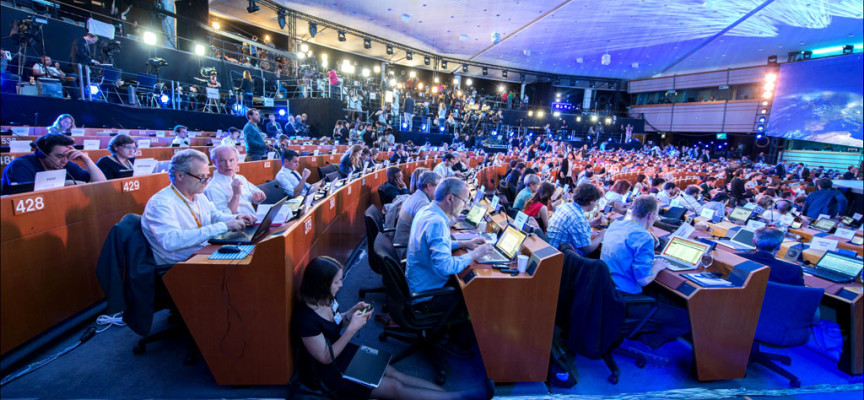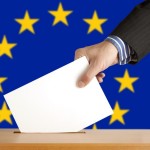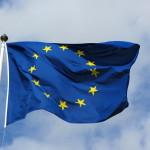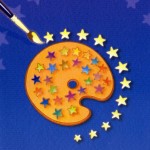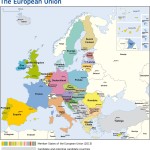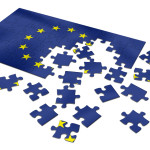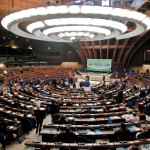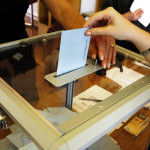Once the predictions of the first exit polls had been confirmed, the heads of all the political parties took turns to speak from the platform. When the turn of the Briton Nigel Farage, leader of UKIP (United Kingdom Independence Party) came he was asked: “Mr Farage, will the results of your party have an impact on European policy?” Answer: “I don’t know if our result will make any difference to European policy but you can be absolutely certain that it will make a difference to British politics.” This disarmingly honest reply serves to sum up the results of these 2014 European elections: a rise in populist and far-right parties in Europe, encouraged in the context of voter discontent with their national governments with, at the end of the day, probably very little ambition on the part of these parties to have any impact on European politics but rather to be more influential in national politics.
This is indeed a paradox. One can even wonder in what elections the voters thought they were voting. In fact, in the end, French citizens will be represented in the European Parliament by a majority of MEPs from the French National Front which obtained 24 seats; the same is true for the British, represented by MEPs from UKIP (24 seats) and the Danish by a majority of MEPs belonging to the “Dansk Folkeparti” populist party (4 seats).
In other European countries the populist parties did not achieve a majority but did manage some pretty good results: In Italy the Five Star Movement obtained 21% of the votes and 17 seats. In Austria nearly 20% of the votes and 4 seats go to the FPÖ (Freiheitliche Partei Österreichs – Austrian Freedom Party); in Hungary the Jobbik (Movement for a better Hungary) party obtained 14% of the votes and 3 seats.
Will this sudden growth of populist and nationalist movements succeed in destabilising the European Parliament? You cannot bet on it. Besides, the main players don’t seem to be convinced themselves, as witnessed by Nigel Farage’s declaration. In fact, the key to political influence at European level lies in the capacity to form a political group. This gives an entitlement to increased resources (assistants, secretariat, offices and communications equipment). In any case, the role of an MEP is not simply to vote on texts. Before every vote in the plenary session it is these political groups that examine the reports produced by EP committees and which propose amendments.
However, in order to form a political group in the European Parliament, you have to get together a minimum of 25 MEPs from 7 different countries. Assuming they can reach this goal, these nationalist parties – with agendas that are by definition divergent – still have the task of trying to reach agreement on a programme and on common positions. In short, they have to learn to “think European” rather than “national” which would in itself constitute for them without any doubt a useful learning curve…
But the new populist parties are far from holding the majority in the European Parliament. It is in fact the pro-European parties that have won the elections with an advance for the conservative European Peoples Party (EPP – 214 seats), which is ahead of the socialists and democrats (S&D – 191 seats) and the liberals and democrats (ALDE – 64 seats). The entry of Eurosceptics into the EP will thus force the traditional parties such as EPP, the S&D and ALDE to set out their agendas clearly (pin their colours to the mast etc) but will it facilitate a coalition of the pro-European parties? In any case 376 votes are needed to obtain an absolute majority of the 751 MEPs.
Newly elected MEPs who have not yet joined any of the existing political groups make up a group of 60 MEPs and 41 non-attached Members. They will have the choice, for some of them, of sitting on the far left. Right-leaning and far right populist parties will be able to choose between the EFD (Europe of Freedom and Democracy) to which Nigel Farage belongs; the currently building coalition to be launched by Marine de Pen (FN) and Geert Wilders (PVV); or to remain among the non-attached MEPs. The hard bargaining has started and the political groups have to be formed before mid-June.
Dopo l’annuncio dei primi risultati consolidati, i leader dei partiti si succedono sul podio. Arriva il turno del britannico Nigel Farage, leader dell’Ukip (United Kingdom Independence Party): “Signor Farage, i voti ottenuti dal vostro partito avranno un impatto sulla politica europea?”. Risposta dell’interessato: “Non so se i voti ottenuti dal nostro partito avranno un impatto sulla politica europea, ma quel che è certo è che avranno un impatto sulla politica britannica”. Una risposta dalla sincerità disarmante che ben riassume i risultati di queste elezioni europee 2014: una crescita dei partiti populisti e di estrema destra in Europa, che evidenzia un contesto di malcontento degli elettori nei confronti dei loro rispettivi governi nazionali, con il corollario, probabilmente, di una scarsa ambizione in questi partiti a influenzare la politica europea, essendo piuttosto interessati a influenzare la loro politica nazionale.
Paradossale, vero? Ci potremmo chiedere se gli elettori non abbiano sbagliato elezioni… Infatti, i cittadini francesi saranno in modo maggioritario rappresentati nel Parlamento europeo da membri del Fronte nazionale, che ha ottenuto 24 seggi. Lo stesso vale per i britannici, rappresentati dai membri dell’Ukip (24 seggi) e per i danesi, rappresentati da una maggioranza di deputati membri del Partito populista «Dansk Folkeparti» (4 seggi).
In altri Paesi europei, i partiti populisti non sono arrivati primi, ma hanno ottenuto percentuali di tutto rispetto: in Italia, il Movimento Cinque Stelle ha ricevuto il 21% dei voti e 17 seggi. In Austria, quasi il 20% dei voti e 4 seggi andranno all’Fpö. In Ungheria, il Jobbik ha ottenuto il 14% dei voti e 3 seggi.
Questa ondata di movimenti populisti e nazionalisti finirà per destabilizzare il Parlamento europeo? Non è affatto detto. Inoltre, i principali interessati non sembrano nemmeno loro molto convinti, come dimostra l’ammissione di Nigel Farage. Infatti, la chiave per un’influenza politica a livello europeo risiede nella possibilità di costituire un gruppo politico. Questo infatti dà diritto a maggiori risorse (personale, segreteria, uffici e media). Poiché il ruolo di un deputato non si esaurisce nel votare i testi. Prima di ogni votazione in seduta plenaria, i gruppi politici esaminano le relazioni delle commissioni parlamentari e depositano le proposte di emendamenti.
Ora, per formare un gruppo politico del Parlamento europeo, occorre mettere insieme almeno 25 deputati provenienti da sette Paesi. Anche ammesso che questo numero possa essere raggiunto, è ancora necessario che dei partiti nazionalisti, per definizione divergenti, raggiungano un accordo su un programma e posizioni comuni. In sintesi, che imparino a “pensare europeo” piuttosto che “nazionale”, il che di per sé costituirebbe senza dubbio un apprendimento molto benefico…
Tuttavia, i nuovi partiti populisti sono lontani dal costituire la maggioranza nel Parlamento europeo. Sono infatti i partiti pro-europei che hanno vinto queste elezioni, con una crescita del PPE, il partito conservatore europeo (214 seggi), seguiti dai Socialdemocratici dell’S&D (191 seggi) e dai liberaldemocratici dell’Alde (64 seggi). L’ingresso degli euroscettici nel Parlamento obbligherà i partiti tradizionali come Ppe, S&D e Alde a esporre chiaramente i loro colori e le loro convinzioni e faciliterà una coalizione di partiti pro-europei? Occorrono in ogni caso 376 voti per ottenere la maggioranza assoluta dei 751 membri del Parlamento europeo.
I neo-eletti che non appartengono a nessuno dei gruppi politici esistenti rappresentano un effettivo di 60 deputati e i non iscritti sono 41. Potranno scegliere fra stare seduti sull’estrema sinistra, da una parte, e, per i partiti populisti di destra e di estrema destra, potranno scegliere tra il Gruppo Efd (Europa Libertà Democrazia) di Nigel Farage, il progetto di coalizione lanciato da Marine Le Pen (Fn) e Geert Wilders (Pvv) o di rimanere tra i non iscritti. Le trattative sono iniziate e i gruppi politici dovranno essere formati entro metà giugno.
Epreuve de Sudoku au Parlement européen
Il est environ minuit ce dimanche 25 mai, lorsque les résultats apparaissent sur les écrans. L’hémicycle du Parlement européen à Bruxelles est aménagé pour l’occasion en gigantesque salle de presse, accueillant les médias de toute l’Europe, presse écrite et audiovisuelle. Les spectaculaires écrans disposés à 180°C autour de l’hémicycle diffusent en continu la cartographie des résultats, pays par pays.
Après l’annonce des premières estimations consolidées, les chefs de partis se succèdent à la tribune. Vient le tour du britannique Nigel Farage, le leader du parti UKIP (United Kingdom Independence Party). « Mr Farage, le score de votre parti aura-t-il un impact sur la politique européenne ? » Réponse de l’intéressé : « Je ne sais pas si notre score aura un impact sur la politique européenne, mais ce qui est sûr, c’est qu’il en aura un sur la politique britannique ». Une réponse désarmante de sincérité et qui résume à elle seule le résultat de ces élections européennes 2014 : Une montée des partis populistes et d’extrême droite en Europe, à la faveur d’un contexte de mécontentement des électeurs vis-à-vis de leur gouvernement national, avec à la clé sans doute très peu d’ambition chez ces partis de peser sur la politique européenne, mais plutôt de peser davantage dans la politique nationale.
Paradoxal, non ? On peut se demander si les électeurs ne se seraient pas trompés d’élection. En effet, les citoyens français seront majoritairement représentés au Parlement européen par des députés du Front national qui obtiennent 24 sièges ; de même les britanniques par des députés du UKIP (24 sièges) et les danois par un majorité de députés issus du parti populiste « Dansk Folkeparti » (4 sièges).
Dans d’autres pays européens, les partis populistes ne sont pas arrivés en tête mais ont obtenu des scores honorables : en Italie, le « Movimento Cinque Stelle » a recueilli 21% des voix et 17 sièges. En Autriche, près de 20% des voix et 4 sièges iront au FPÖ ; en Hongrie, le Jobbik obtient 14% des voix et 3 sièges.
Cette poussée des mouvements populistes et nationalistes parviendra-t-elle à déstabiliser le Parlement européen ? Rien n’est moins sûr. D’ailleurs, les principaux intéressés n’en semblent même pas convaincus eux-mêmes, comme l‘atteste l’aveu de Nigel Farage. En effet, la clé de l’influence politique au niveau européen réside dans la capacité de former un groupe politique. Cela donne en effet droit à des moyens accrus (collaborateurs, secrétariat, bureaux et moyens de communication). Car le rôle d’un député européen ne se résume pas à voter un texte. Avant chaque vote en séance plénière, ce sont les groupes politiques qui examinent les rapports issus des commissions parlementaires, et qui déposent des amendements.
Or, pour former un groupe politique au Parlement européen, il faut rassembler au minimum 25 députés issus de 7 pays différents. A supposer que cet effectif puisse être atteint, encore faut-il que des partis nationalistes aux intérêts par définition divergents, parviennent à s’entendre sur un programme et des positions communes. Bref, qu’ils apprennent à « penser européen » plutôt que « national », ce qui en soi constituerait sans aucun doute pour eux un apprentissage bénéfique…
Or les nouveaux partis populistes sont loin d’être majoritaires au Parlement européen. Ce sont en effet les partis pro-européens qui ont remporté ces élections, avec une avance pour le Parti conservateur européen PPE (214 sièges), qui devance les sociaux-démocrates S&D (191 sièges) et les libéraux & démocrates ADLE (64 sièges). L’entrée des eurosceptiques au parlement obligera-t-elle les partis traditionnels comme le PPE, le S&D et l’ADLE à afficher clairement leurs couleurs et leurs convictions et facilitera-t-elle une coalition des partis pro-européens ? Il faut en tous cas 376 voix pour obtenir la majorité absolue des 751 membres au Parlement européen.
Les nouveaux élus qui n’appartiennent à aucun des groupes politiques existants représentent un effectif de 60 députés et les non-inscrits 41. Ils auront le choix entre siéger à l’extrême gauche d’une part, et pour les partis populistes de droite et d’extrême droite, ils auront le choix entre le groupe EFD (Europe liberté démocratie) de Nigel Farage, le projet de coalition lancé par Marine le Pen (FN) et Geert Wilders (PVV) ou de rester parmi les non-inscrits. Les tractations ont commencé et les groupes politiques devraient se former avant la mi-juin.
Sudoku im Europäischen Parlament
Es ist fast Mitternacht an diesem Sonntag, dem 25. Mai 2014, als die Ergebnisse auf den Bildschirmen erscheinen. Der Plenarsaal des Europäischen Parlaments in Brüssel ist eigens zu diesem Anlass in einen riesigen Presseraum für die Vertreter von Rundfunk und Presse aus ganz Europa umfunktioniert worden. Auf gigantischen Bildschirmen, die über dem gesamten Plenum angebracht sind, werden fortwährend die neuesten Ergebnisse aus jedem Land eingeblendet.
Nach den ersten verlässlichen Hochrechnungen ergreifen die Parteiführer einer nach dem anderen das Wort, so auch der Brite Nigel Farage, Chef der rechtspopulistischen UKIP (United Kingdom Independence Party). „Herr Farage, wird der Stimmenanteil Ihrer Partei Einfluss auf die europäische Politik haben?“ Die entwaffnend ehrliche Antwort lautet: „Ich weiß nicht, ob dieses Wahlergebnis Einfluss auf die europäische Politik haben wird, eines aber ist sicher: Es wird die britische Politik beeinflussen.“ Diese Aussage fasst die Ergebnisse der Europawahlen 2014 trefflich zusammen: Vor dem Hintergrund der Unzufriedenheit der Wählerinnen und Wähler mit ihren nationalen Regierungen befinden sich die rechten und rechtsextremen Parteien im Aufwind. Allerdings haben diese nur wenig Interesse daran, Europapolitik zu betreiben, sondern wollen vielmehr im eigenen Land Einfluss nehmen.
Ein Widerspruch? Haben sich die Wählerinnen und Wähler etwa in der Wahl geirrt? Tatsächlich werden die französischen Bürgerinnen und Bürger im Europäischen Parlament mehrheitlich von Mitgliedern des rechtsextremen Front National (24 Sitze) vertreten sein, die Briten mit 24 Sitzen von der rechtspopulistischen Partei UKIP und die Dänen von der europafeindlichen Dansk Folkeparti (4 Sitze).
In anderen europäischen Ländern haben die rechtspopulistischen Parteien zwar nicht die Mehrheit, aber durchaus einen Achtungserfolg erzielt: In Italien errang die Partei „Movimento Cinque Stelle“ 21 % der Stimmen und damit 17 Sitze im Europaparlament; in Österreich gingen fast 20 %, somit 4 Sitze an die FPÖ und in Ungarn kam die Partei Jobbik auf 14 % der Stimmen und damit 3 Sitze.
Wird dieser Erfolg der rechtspopulistischen, europafeindlichen Bewegungen das Europäische Parlament destabilisieren? Davon ist keineswegs auszugehen. Selbst die betroffenen Protagonisten sind skeptisch, wie die Aussage von Nigel Farage belegt. Wer im Europaparlament Einfluss nehmen will, muss einer politischen Fraktion angehören, die Anspruch auf entsprechende Mittel (Mitarbeitende, Sekretariat, Büros und Kommunikationsmittel) hat. Die Rolle des Europaabgeordneten beschränkt sich nicht darauf, einen Text zu verabschieden. Vor jeder Abstimmung im Plenum prüfen die Fraktionen die Berichte der parlamentarischen Ausschüsse und reichen Änderungsanträge ein.
Um eine Fraktion im Europäischen Parlament zu bilden, müssen sich mindestens 25 Abgeordnete aus sieben verschiedenen Ländern zusammenschließen. Sollte dies den nationalistischen Parteien gelingen, müssten sich diese Parteien, die per definitionem unterschiedliche Interessen vertreten, auf ein gemeinsames Programm und gemeinsame Positionen verständigen. Dies hieße, dass sie verstärkt „europäisch“ und weniger „national“ denken müssten, eine Übung, die ihnen zweifellos gut tun würde.
Allerdings bilden die neuen rechtspopulistischen Parteien im Europäischen Parlament bei weitem nicht die Mehrheit. Tatsächlich haben die proeuropäischen Parteien den Sieg davongetragen, allem voran die konservative Europäische Volkspartei mit 214 Sitzen, gefolgt von den Sozialdemokraten S&D (191 Sitze) und der Allianz der Liberalen und Demokraten ALDE (64 Sitze). Wird der Einzug der Euroskeptiker die traditionellen Parteien wie die EVP, die S&D oder ALDE dazu zwingen, Farbe zu bekennen und Position zu beziehen? Wird er eine Koalition der Pro-Europäer begünstigen? In jedem Fall sind für eine absolute Mehrheit im Europäischen Parlament mindestens 376 Stimmen der 751 Parlamentsmitglieder vonnöten.
60 neugewählte Abgeordnete gehören keiner der bislang im EU-Parlament vertretenen Fraktionen an, 41 sind fraktionslos. Sie haben die Wahl zwischen der extremen Linken einerseits und rechten und rechtsextremen Parteien andererseits, Letztere vertreten durch die nationalkonservative Fraktion Europa der Freiheit und der Demokratie von Nigel Farage und der noch im Aufbau Anti-Europa-Koalition von Marine le Pen (FN) und Geert Wilders (PVV). Oder aber sie bleiben fraktionslos. Die Verhandlungen haben begonnen und die Fraktionen werden voraussichtlich bis Mitte Juni gebildet sein.
Johanna Touzel
Latest posts by Johanna Touzel (see all)
- Brexit: British and Irish Bishops - 2 novembre 2016
- To climb down from our European pedestal - 8 giugno 2016
- European Commission: the best team? - 3 settembre 2014

